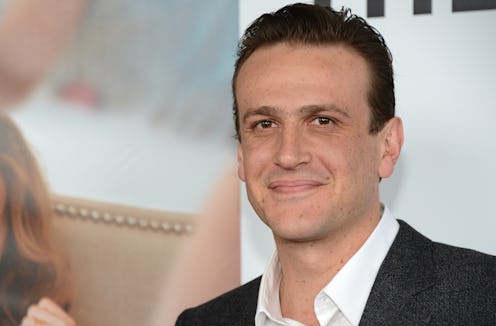Entertainment
Jason Segel On 'The End Of The Tour'
To any outside observer, Jason Segel's career has been the stuff of dreams. He got his start on one of the most acclaimed TV shows of all time, Freaks and Geeks; played a lead character in one of the most watched TV shows of all time, How I Met Your Mother; and starred in hugely successful comedies like I Love You, Man and Forgetting Sarah Marshall. Yet to the actor himself, these roles, while certainly worthwhile, were missing something important.
"I've done a lot of cool things," Segel said, speaking Wednesday night at the Boston premiere of his new film, The End of the Tour . "But I needed something that would make me feel different inside."
With The End of the Tour, the actor seems to have accomplished that goal. The biographical drama, about the famed 1996 road trip taken by iconic author David Foster Wallace (Segel) and a Rolling Stone reporter, David Lipsky (Jesse Eisenberg), is a huge departure from Segel's typical work, with the actor taking on a darker, more complex role than he's ever done before. To play Wallace, a troubled writer struggling with fame and depression, Segel was required to delve as deep as possible into the character, embodying the author by wearing his trademark bandanas, taking on his voice, and copying his many mannerisms.
Speaking about his performance, Segel said that his main goal was for viewers not to see the gears working, or, as he put it, "watch Jason Segel try to do acting."
Which, for him, meant truly understanding the intense phrases and lengthy monologues written in his script.
"[Wallace spoke in] well-constructed thoughts with a thesis and points to back it up," Segel explained. "I needed to emotionally understand the things I was saying... I didn't want to sound like I was just saying words."
Yet Segel believed that showing "self-satisfaction" would go against all he tried to accomplish in the role. Instead, he "wanted to approach him [Wallace] with real respect," working to give a credible performance while being "as honest as I possibly could."
Segel credits the film's director, James Ponsoldt ( The Spectacular Now ) with helping him find that balance.
"It was really important to James and I to not have it feel like an impression," he said. "That's not what the movie is about."
He also expressed his gratitude towards Ponsoldt for casting him in the part, when his resume of TV shows and Judd Apatow movies might've kept most directors from even looking his way.
"It speaks to James as director that he saw me as the choice," Segel said, adding with a laugh, "I don't think when a David Foster Wallace script comes across your desk you think, we need to get Jason Segel on the phone."
All joking aside, Segel went on to speak passionately about his time making the movie, saying that while the days were long and the budget tight, "everything felt earned."
"This felt like a big reminder of why you get started on the first place," he said. "Everyone involved was there because they loved it."
Still, the limitations of indie filmmaking certainly had an effect on the process. Said Segel, laughing, "in a studio film, you don't hear the sentence, 'we're about to run out of film.'”
Issues aside, though, the actor emphasized that getting to play a role like Wallace was what he'd wanted to achieve his entire career, ever since his start as a teenager. While some years were leaner than others — Segel spoke of being unemployed in his early '20s and wondering if he's have to "live with my parents forever" — acting, and creativity in general, was always his focus.
"I didn't wait for permission," he said, noting that he wrote when he wasn't acting and made music when he wasn't writing.
Clearly, the work paid off; Segel's won raves for his role as Wallace, and in a few months time, it wouldn't be a surprise to see his name listed among next year's Oscar hopefuls. And even if that's not the case, the actor would be the first to say that doing the movie has affected his career in a major way.
Said Segel, "it changed the criteria of success."
Images: A24; Universal
